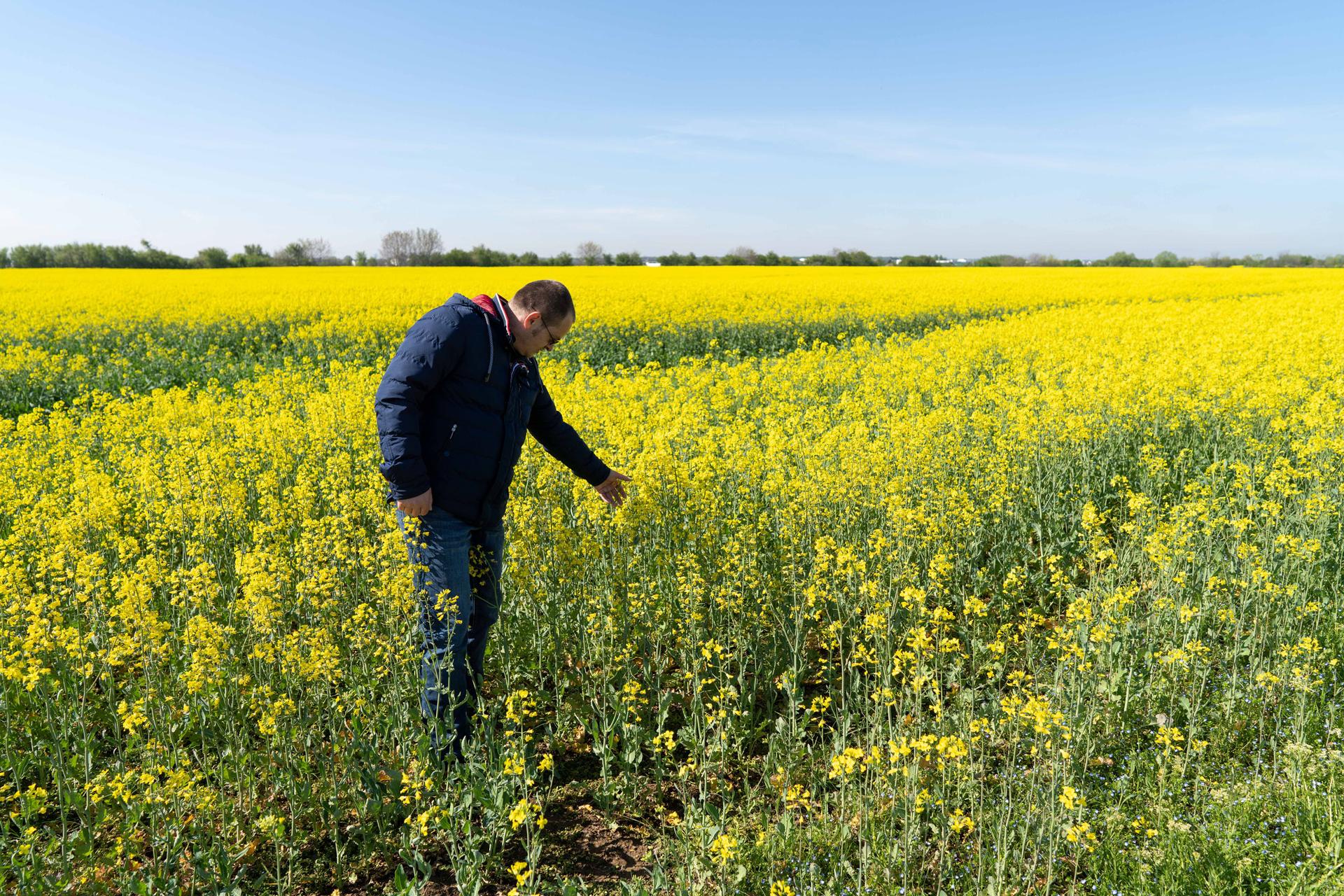Romanian farmer Ionuț Spiță, 44, is hoping for a bumper harvest for his rapeseed crop this year.
The vast fields of blooming yellow flowers outside the small village of Tunari, 13 miles north of Bucharest, Romania, is a scene made for Instagram selfies. But a plentiful harvest does not guarantee big profits for Spiță, the general director of this 914-acre farm.
Last year, the oil factories that usually buy up his crop of rapeseed and sunflower seed told him their stocks were already piled high. Romanian traders offered him a vastly reduced price for his wheat.
The downturn in Spiță’s profits was driven by the glut of cheaper Ukrainian grain and oilseeds that was intended for Africa and the Middle East but flooded the Central and Eastern European markets. High fuel and fertilizer costs added to his woes. Romanian farmers say if it happens again this year, they are in danger of bankruptcy.

Less than a week after Russia invaded Ukraine on Feb. 24 last year, the United Nations issued an alarming warning: The war threatened an unprecedented global food crisis in countries far from Europe, the UN said.
Ukraine is the world’s fifth-biggest grain exporter and provides up to 40% of the World Food Program’s wheat supplies. But Russian bombardment of Ukrainian ports on the Black and Azov Seas meant food exports intended for Africa and elsewhere could not be shipped out.
The European Commission came up with a series of proposals to tackle the problem, including lifting all duties on Ukrainian grain and creating so-called “solidarity lanes” in Central and Eastern Europe. The Commission proposed sending the grain and other produce via road, rail or river through nearby countries like Romania, Poland and Bulgaria. The crops could then be shipped onwards from ports like Constanța in southeastern Romania, to markets in Africa and beyond.
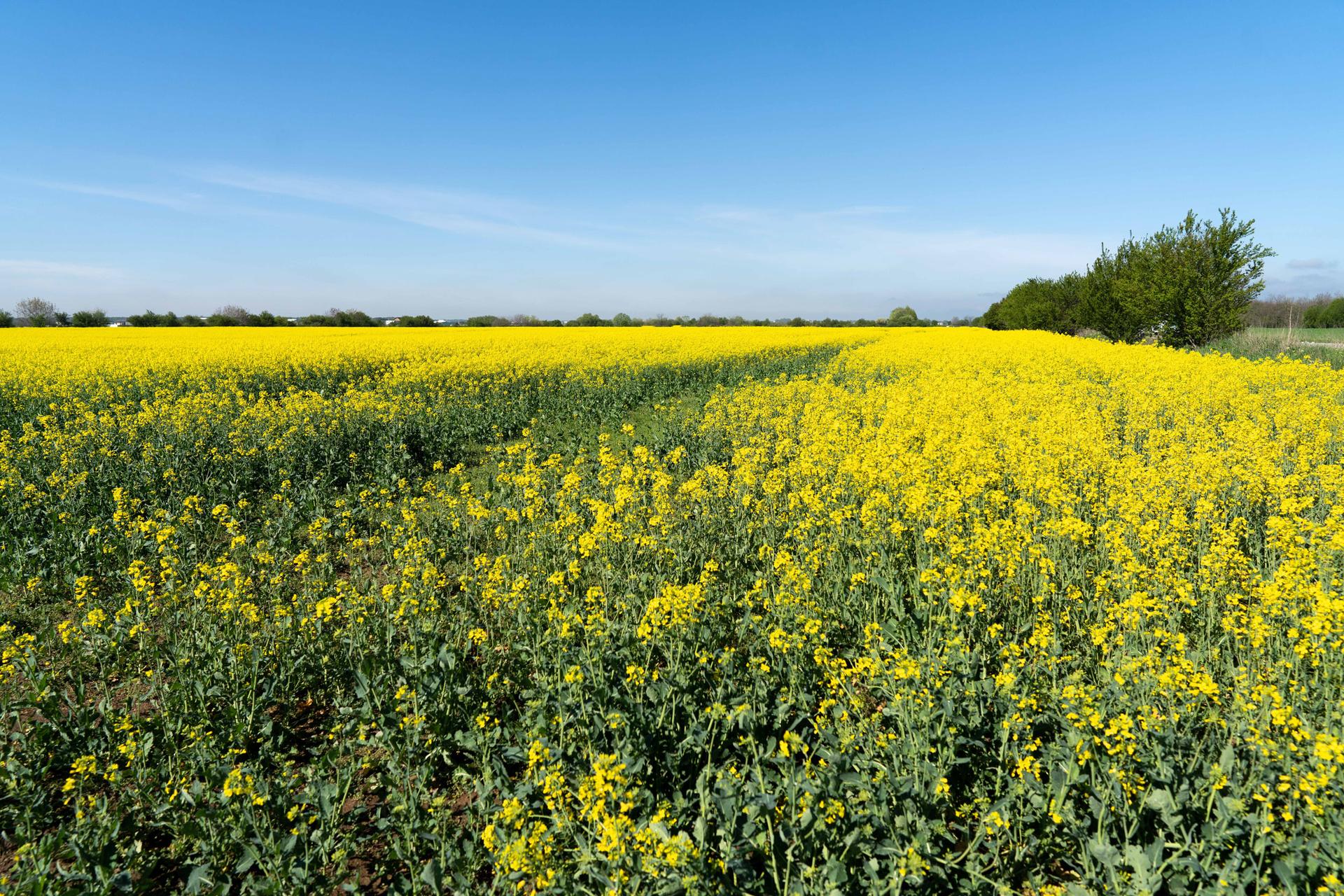
Romanian agricultural consultant Cezar Gheorghe, with Agricolumn, said he knew the plan would run into trouble. Gheorghe, who advises the Romanian Ministry for Agriculture, said he warned the government that much of the grain would never make it to its ultimate destination.
“I told them frankly, that those grains will not reach African countries. The goods will remain in the European Union because EU countries desperately needed corn, for example, last year, especially because of the huge drought in the summer.”
Nobody paid any attention to his warnings, he said.
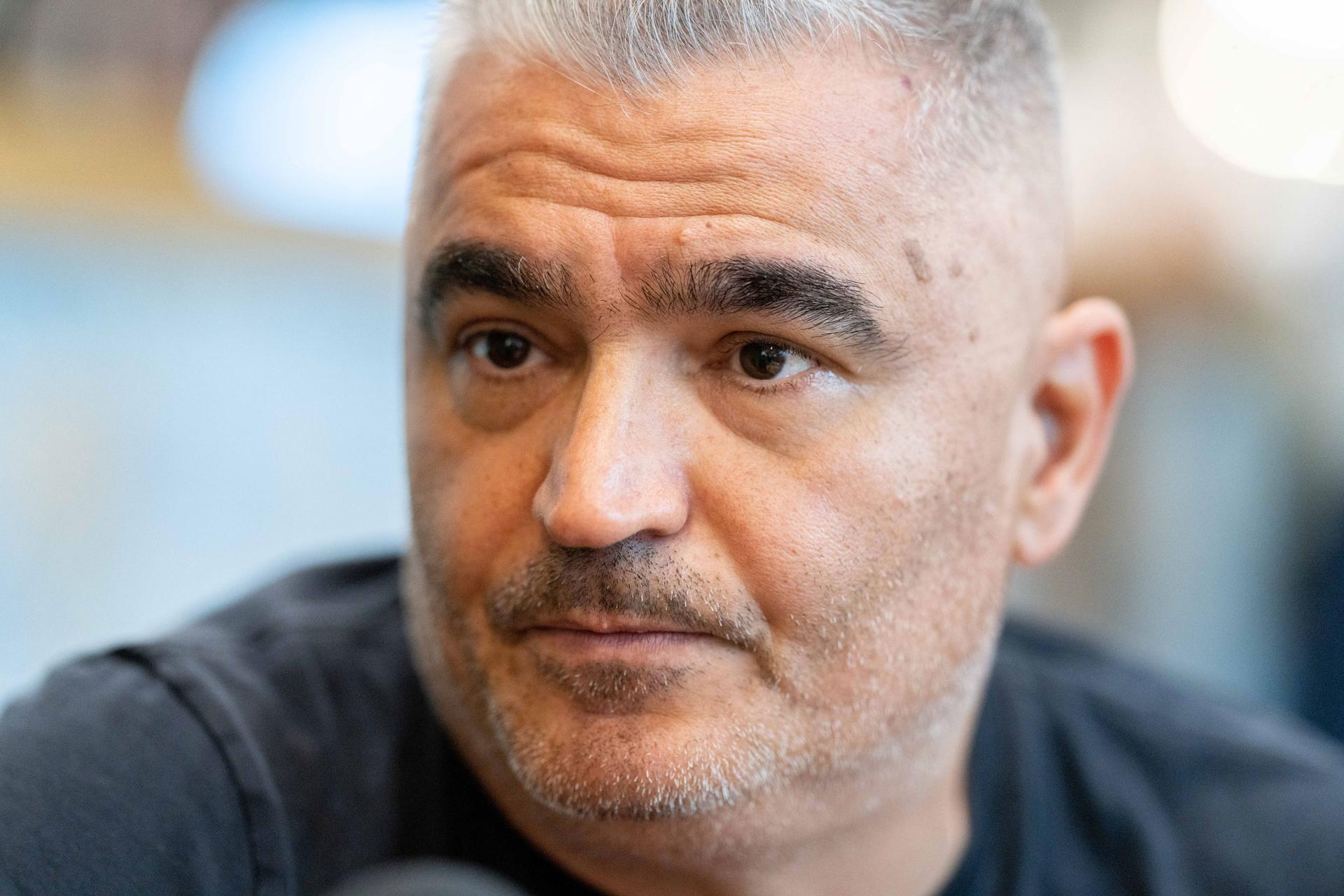
But by early September, farmers like Spiță were forced to take notice.
Prices plummeted as traders and factories in Europe began buying the Ukrainian alternative as it transited the region. Some Romanian farmers say they still have barns brimming full of last year’s stock.
Spiță calls them the lucky ones.
“They are the farmers who could afford to not sell their grain,” said Spiță, who sold all his produce but at a lower price.
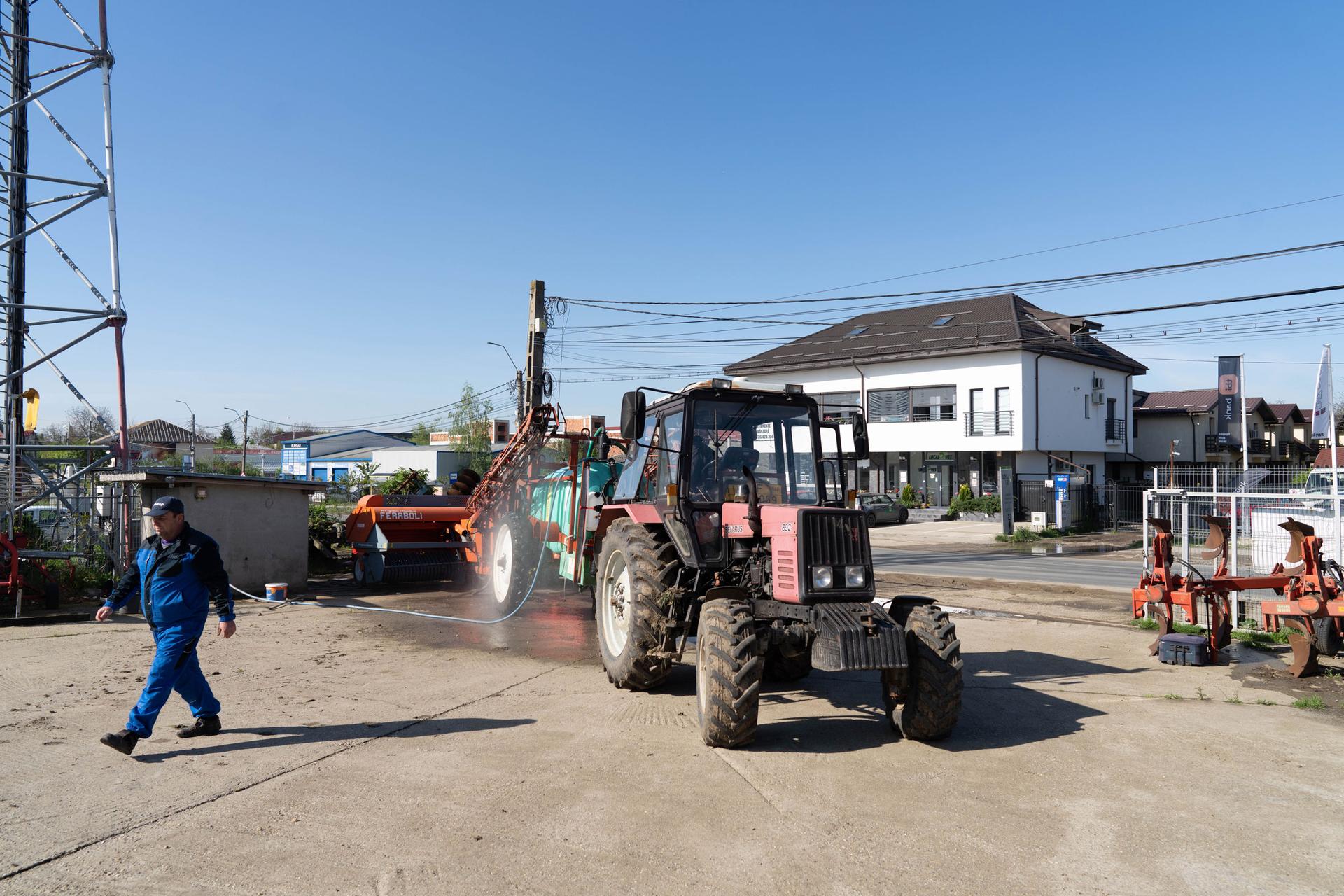
Now, farmers in Central and Eastern Europe are worried about this year’s harvest.
In early April, hundreds of angry farmers drove tractors into central Bucharest, demanding action from the Romanian government. Farmers in Bulgaria and Poland took to the streets to protest, too.
A few days later, governments in Poland, Hungary, Bulgaria and Slovakia imposed temporary bans and other restrictions on grain imports from Ukraine. Only Romania held back. The country’s Agriculture Minister Petre Daea said he didn’t think it was in Romania’s interest to break EU trade rules.
Gheorghe, who advises the minister, said it was the right move and he doubts that the other Eastern European governments’ unilateral bans had only the farmers’ livelihoods in mind.
“From my perspective, there are also political interests involved, given the fact that Poland has a general election this year and in Bulgaria it is the same,” Gheorghe said.
But politically motivated or not, Romanian farmers are furious at their government’s inaction.
Up until last year, Ukraine sent hardly any grain to Romania. In the past 14 months, the Romanian Farmers Club, a lobby group, estimated that as much as half of the grain designated for transit through Romania under the European program stayed in the country.
Spiță said his country’s government has done nothing for farmers locally.
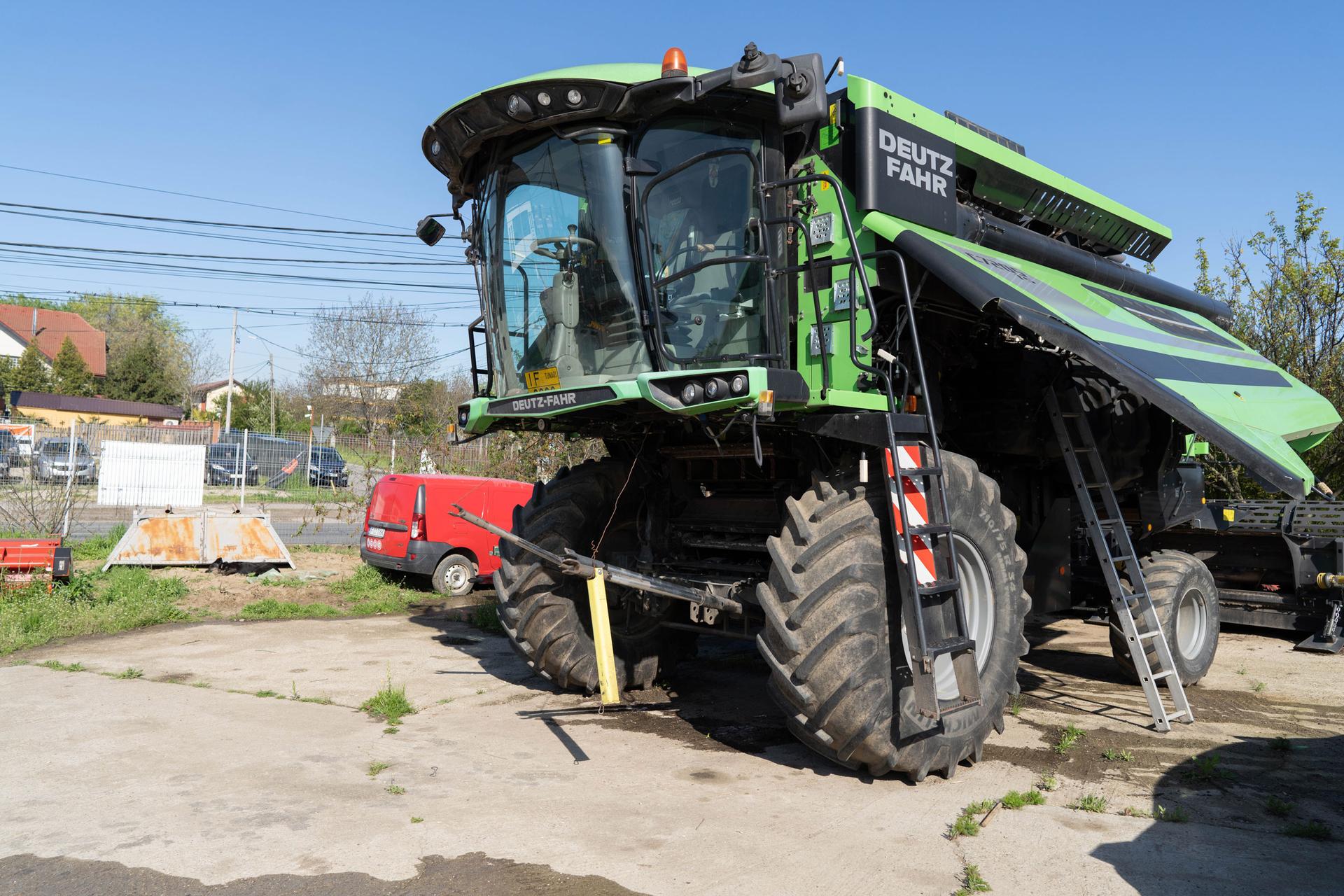
Romania shares a 381-mile border with Ukraine and along with Poland, has been a stalwart supporter of the country since the start of the war, welcoming in some of the highest number of Ukrainian refugees per capita.
The protest by farmers in Bucharest as well as in Poland and Bulgaria is a rare public sign of frustration at the impact the war is having on neighboring countries.
Spiță said he sympathizes with Ukraine, but added that the government in Romania needs to protect its own population, too.
Gheorghe, the agricultural consultant, said that the Romanian people are still fully in solidarity with Ukraine but this is business.
“As Romanians, we will never give up on our commitment to helping the Ukrainian people in terms of casualties and resources for fighting the war. But the trade is the trade and the war is the war,” Gheorghe said.
On April 28, the European Commission announced it had struck a deal with Romania and the four other Eastern European countries: The sale of wheat, maize, rapeseed and sunflower seeds is to be blocked in the region and will only be allowed transit through to other EU countries or third countries.
The commission also announced financial support of $110 million for farmers in the five nations. In return, EU Trade Commissioner Valdis Dombrovskis said the four countries of Poland, Bulgaria, Slovakia and Hungary would withdraw their unilateral bans.
Details are still being finalized and are likely to be adopted in coming days, Dombrovskis said. EU ambassadors also backed a proposed extension of Ukraine’s tariff-free access to the bloc’s single market.
Farmer Spiță said he doesn’t yet know how the changes will affect his turnover this year.
“We will have to wait until this year’s harvest,” he said.
But then, he shrugged.
“Farmers are resilient, we are used to having all sorts of problems every year from political ones to meteorological ones,” he said. “We are survivors.”
Raul Stef contributed to reporting.
